QUORS 2020: The 14th IEEE International Workshop on Quality Oriented Reuse of Software
Call for Papers
Goal of the workshop:
Software reuse has been one of the most effective paradigms for building software systems and applications for decades. Recently, the rapid and fundamental advances in computing technologies have been driving the role and scope of software systems to new levels. A number of new types of software systems are emerging, among which microservice oriented systems, pervasive computing, cloud computing, AI-driven smart systems and big data applications are eminent examples. The advent of these emerging systems has raised the level of software reuse to services, large-scale components or agglomeration of components in more challenging context which is pervasive, service-oriented, AI-driven and trustworthy. Systematic and large-scale reuse of reusable assets at multiple development levels is improving the efficiency of software development activities significantly in terms of cost and time.
However, previous research in software reuse mainly focused on the functional aspect of a system, tended to ignore or treat the quality aspects trivially. Modern computing models tend to be globally distributed, ubiquitous, highly secure, intelligent and dynamically adaptive. These systems, such as smart/pervasive systems, cloud services, microservice-based systems and big data applications, have imposed more rigorous quality requirements on software reuse technologies. Today in the “smart IoT era”, it becomes a great challenge to meet the new requirements of emerging software systems and meanwhile enjoy the benefits of substantial software reuse.
Recently, the research community and industry have been aware of the above weakness and much work has been ongoing. In this workshop we wish to bring together researchers and practitioners to share latest research results, advances and practical experiences under the banner of “Quality Oriented Reuse of Software for Emerging Software Systems in IoT and AI Era”. The workshop will act as a forum for active discussion, idea stimulation and communication.
Workshop theme & scope:
The workshop will bring together researchers and developers from academia and industry for advancing the methodology and technology of software reuse which emphasizes meeting strict quality requirements, such as dependability, agility, security and performance, particularly in the context of emerging types of software systems. The workshop seeks new approaches, system architectures and tools that facilitate the quality aspects of software reuse technologies.
Topics of interest include, but are not limited to:
- Pervasive or ubiquitous systems;
- Microservices and reuse;
- AI-driven smart systems;
- Machine learning based software engineering
- Architecture and models for Big Data applications;
- Architecture and models for IoT applications;
- Trustworthiness and security models
- Trustworthy software reuse methods;
- Dependable component-based systems;
- Software product lines;
- Quality aspects of design patterns;
- Software evolution;
- Software quality metrics and testing;
- Model-driven software engineering;
- Component and service repository;
- Service Oriented Architecture;
- Cloud computing services: SaaS, PaaS and IaaS;
- Quality of clouds services;
- Reuse in safety critical systems;
- Reuse in service and component based Enterprise Systems;
- Reuse in embedded software systems;
- Open source software reuse;
- Case studies and experience reports.
Likely participants: Researchers and practitioners in software engineering, software reuse, software evolution, emerging software systems such as microservices, AI-driven computing, pervasive systems and cloud computing, testing and quality assurance and all other relevant areas. The chairs expect to bring to the workshop researchers and practitioners worldwide from research institutes, universities and industries.
Submission deadline date extended to May 1, 2020
Workshop Chairs
Xiaodong Liu, Edinburgh Napier University, UK
Email: x.liu@napier.ac.uk
Hongji Yang, Leicester University, UK
Email: hongji.yang@leicester.ac.uk
